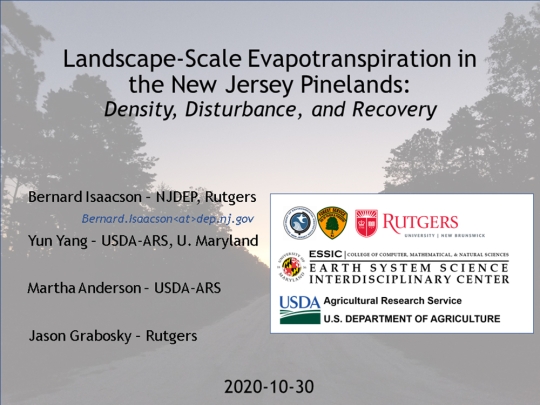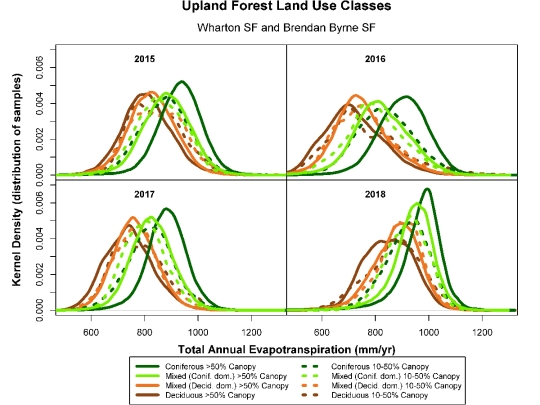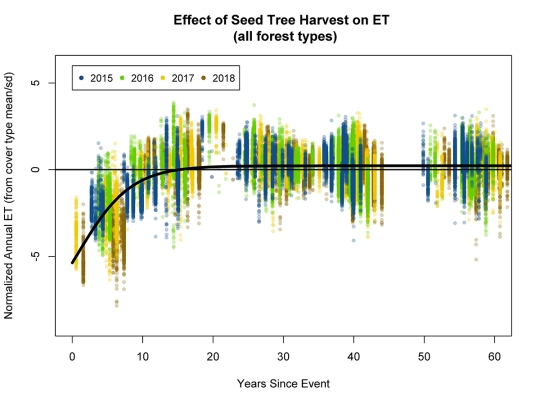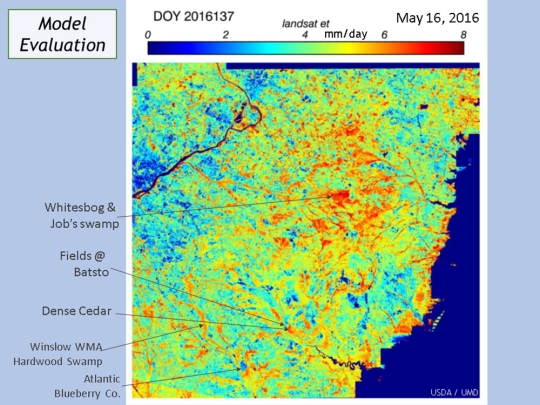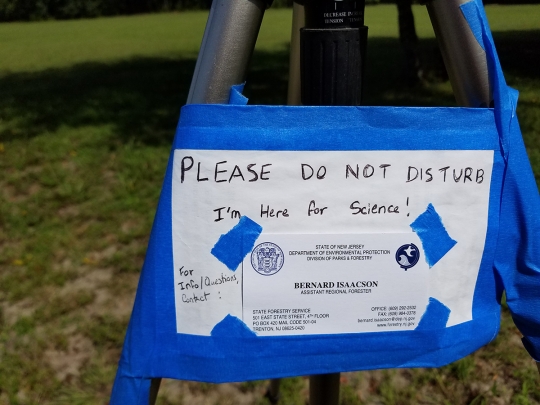Ecology & Evolution PhD Candidate Bernard Isaacson Recognized for Research on Forest Water Use in the New Jersey Pinelands
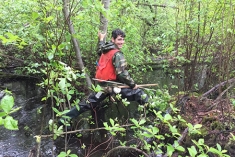
The Society of American Foresters (SAF) began 120 years ago “to further the cause of forestry in America,” and it runs an annual convention to discuss developments in the sustainable management of forest resources. The 2020 convention, instead of being held in Providence, Rhode Island as planned, was instead the first virtual convention held by SAF. Over three days at the end of October, participants could listen in to hundreds of scientific and technical presentations, Q&A sessions, and panel discussions from across the broad field of forest resource management.
Bernard Isaacson, a PhD candidate in Dr. Jason Grabosky’s lab, was awarded the 2nd place prize in the Forest Science & Technology Board’s 2020 contest for best student presentations. Congratulations Bernard!
Bernard presented his research on evapotranspiration in the New Jersey Pinelands Forest, as part of the convention theme of “Managing Forests as Watersheds”:
Forest evapotranspiration (ET) is the dominant term in water budgets over forests, so minor changes in ET have outsize impacts on the behavior of associated water resources. This research uses remote sensing inputs and DisALEXI model outputs to quantify the effect of generalized forest management actions, forest composition, forest density, and other disturbances on ET over the coastal plain pine forest of southern NJ. The water budget in this system is dominated by ET, and almost all precipitation not recycled into the atmosphere moves through the underlying unconsolidated sand and gravel aquifer. Results indicate that long-term changes to forest structure arising from reductions in disturbance cause considerable, and previously ignored, increases in ET. Disturbance-dependent ecosystems experiencing less-frequent disturbance may witness negative consequences for the stability of groundwater resources due to increased landscape-scale water use by vegetation. Regulatory and administrative conditions established to safeguard the forest resource from some of those disturbances may thus be counter-productive for ensuring robust water provisioning.
